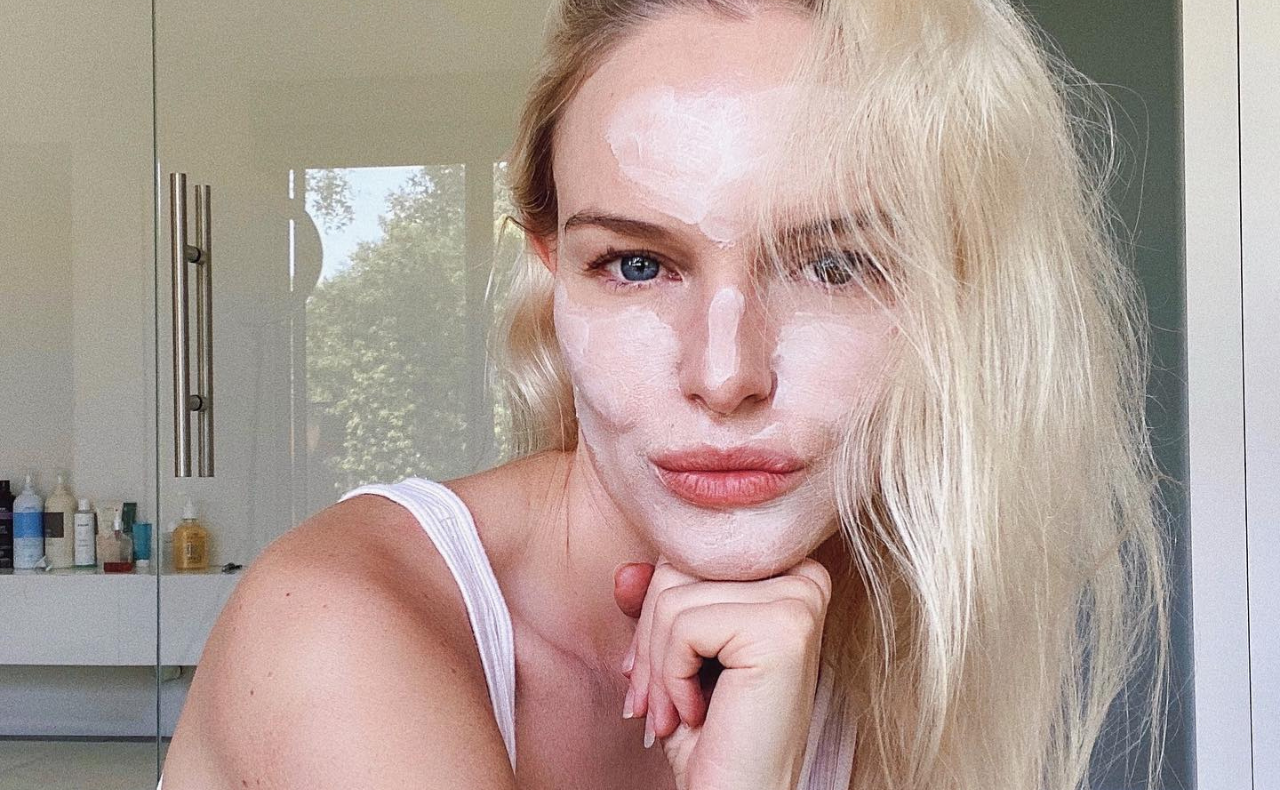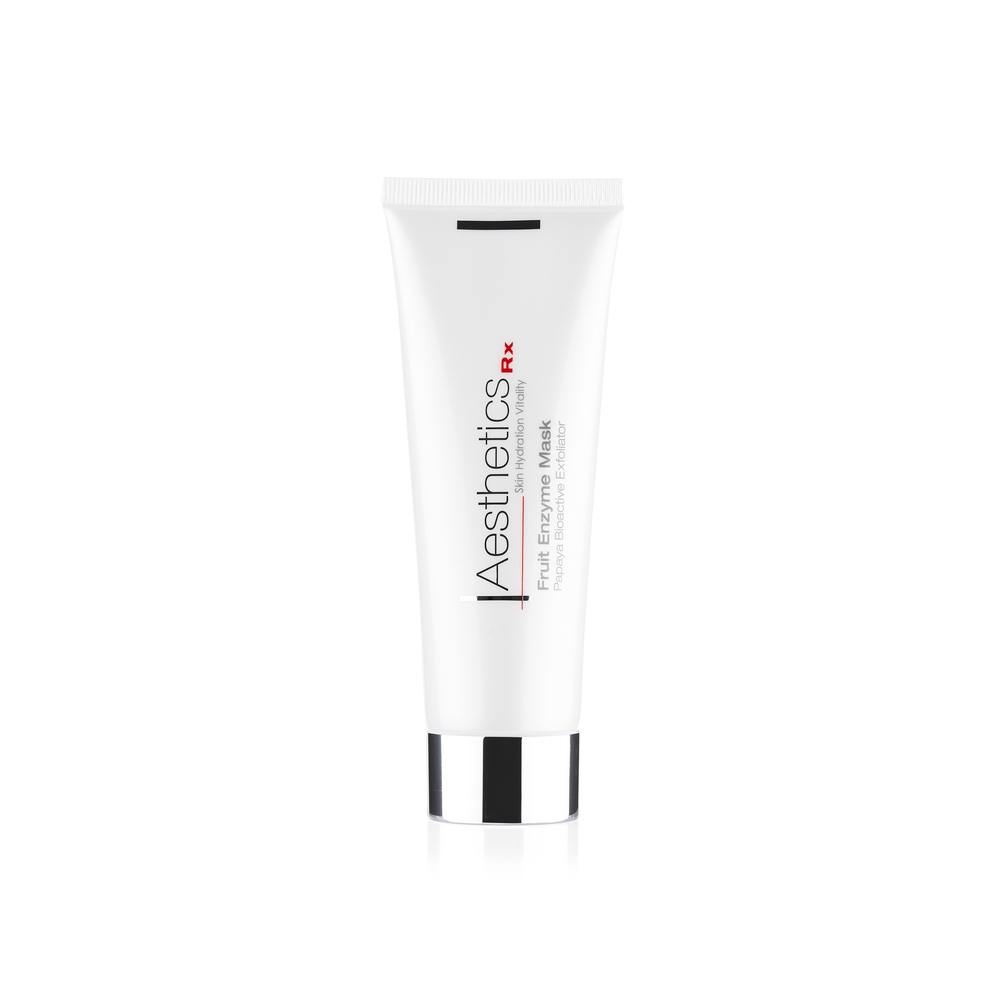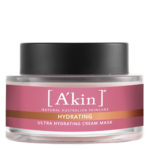Face masks have earned the reputation as being a relaxing self-care step. And while this is true, if you’re strategic about the type of face mask you use and how often you use it, the long-term results for your skin are considerable.
Face masks can do so much more than provide a few minutes of downtime. They can help to clear congestion, exfoliate, hydrate or plump pre-makeup. Whether you like a speedy sheet mask or are after a hero treatment for your at-home facial, consider this your guide for gaining real results.
Below, skin expert Dr Yalda Jamali offers pointers for finding the best face masks for your skin type and how to get the most out of this step.
The different types of face masks
Before we dive into the nitty gritty of ingredients and personalising your face mask usage, here’s a quick guide to the different types of face masks. We’ve included what/who they’re typically best suited for but bear in mind it’s not always the case and formulas vary…
Sheet masks
Sheet masks come in a variety of different formulas with ingredients to tackle different skin concerns, namely hydration, soothing and brightening. We particularly love the no-rinse ease of sheet masks to prep the skin before makeup application or as a quick calming fix.

bh recommends: Skinstitut Quick-Fix Calming Sheet Mask, $34.30 (4 pack) at Adore Beauty
Clay masks
Clay-based masks are typically great for balancing oil production and clearing congestion. They’ve historically received a bad rap for being drying but modern formulas manage to detoxify and hydrate at the same time.

bh recommends: Hemp Co Avocado & Hemp Green Clay Mask, $49 at hempcoaustralia.com
Cream masks
Possibly the most traditional type of face mask, cream masks are exactly that: cream-based. These formulas tend to be hydrating and soothing, working best for dry skin in need of moisture and glow, or sensitive skin in need of soothing.

bh recommends: A’kin Ultra Hydrating Cream Mask, $29.95 at A’kin
Overnight masks
A relatively new phenomenon is overnight masks, which can be left on the skin just like a moisturiser to rejuvenate and protect the skin while you sleep. They’re mostly cream or gel-based, with an occlusive finish.

bh recommends: Skin Proud Sleep Hero, $19.59 (down from $27.99) at Priceline
Exfoliating masks
Exfoliating masks are often formulated with active ingredients that work to remove dead skin cells to reveal a smoother skin surface underneath. They’re great for anyone looking for deeper exfoliation or skin resurfacing.

bh recommends: Aesthetics RX Fruit Enzyme Mask, $60 at Adore Beauty
How often should I be using a face mask in my routine?
So how often should we use a face mask? Weekly? Monthly? DAILY?
Dr Yalda says this will all depend on the ingredients of the face mask, plus your skin type and concern.
“For example, if you suffer from dry skin, then using a hydrating mask even every day will benefit the skin as it will add intense hydration and moisture,” she explains. “On the other hand, if you have oily skin and you use a mask with exfoliating ingredients such as AHAs or BHAs, then overusing them can cause irritation and compromise the skin barrier.”
Her advice? Go nuts with anything hydrating or soothing but limit exfoliating and clay masks to once a week to avoid irritation.
Do I need more than one type of face mask or is one hero enough?
“You can certainly use a couple of different masks in your routine if your skin type allows for it,” says Dr Yalda. After all, our skin doesn’t always stay the same day to day and different issues can crop up that may benefit from different masks.
“If you don’t suffer from dry skin, a hydrating and an exfoliating mask every week would be a fantastic boost [for] the skin.”
What kind of face mask should we be using in winter?
We often look to hydrating face masks in winter and Dr Yalda agrees.
“I would also look out for one of my favourite ingredients, niacinamide, as it has antioxidant and soothing properties,” she says. Her recommendation is the Skin Proud Sleep Hero mask ($19.59 down from $27.99 at Priceline).
“It is suitable for most skin types; it’s important to remember that blemish-prone and oily skin also needs hydration”.
What ingredients should we look for if we’re after a hydrating face mask?
Sometimes face masks don’t spell out what they’re good for on the tin, so Dr Yalda’s compiled a list of ingredients to look for if you’re after hydration:
- Shea butter
- Glycerin
- Niacinamide
- Ceramides
- Hyaluronic acid
- Fatty acids
- Squalane
- Urea
What ingredients should we look for if we’re after a face mask to clear congestion?
As for congestion, Dr Yalda highly rates BHA (salicylic acid). “This is a lipid-soluble ingredient which means it can penetrate through oil and unclog our pores and reduce congestion,” she says.
She adds that it may cause some purging when first used and you may notice some dryness, which is when complimenting exfoliation with hydration would come in handy.
“Other exfoliating acids such as AHAs (glycolic, lactic, and mandelic) and PHAs are also great, she says. “We also can’t forget about retinoids, they increase the skin cell turnover and help to reduce congestion.”
Main image credit: @katebosworth
Do you use a face mask regularly? What type do you like using?









My current favourite is the tumeric one by Kora Organics.
is it yellow ?
Yes it is, a sort of mustardy yellow
Yeah, mustard is a very accurate description.
oh i want to try
I love my overnight sleeping masks
Overnight would be good.
yes I have tried a couple of cream ones as I have dry skin and my skin feels fantastic all day after.
I recently bought an overnight mask but haven’t kept it on all night yet.. Might be something to try out on the weekend
I love over night masks and they usually are clear so you still look like you not like the picture above.
I like sheet masks because they are quick & easy to use. Cooling in Summer.
I like cream masks, the Akin one looks good
Sheet masks are easier to use but clay masks are great for my oily skin
I haven’t used clay ones as my skin is on the dry side.
Not into masks but sometimes think I should give it a go?
excellent information – great to read
Love masks. Shea, yes
I love QV’s clay face mask. Makes my skin feel really soft when it’s washed off.
I love clay and exfoliating masks for a deep cleanse.
I use both sheet masks and clay/cream ones. For the rinse off ones I like to use them in the bath or just before a shower as it’s easy to get them in your hair. For the sheet ones it’s any time but when I have my hair in a towel it is good as my hair is all off my face.
Ultimate luxury.A bath and a mask.
I love the sheet masks. I dont have a set routine but will apply one when I have the time and think of it.
I love face masks and look for hydration usually
I do like the face masks, especially the tissue masks.
I’m a big fan of clay masks for my skin type
love a good face mask but i feel like they get so messy lol
They are sometimes messy but so worth it.
this is why I can’t use sheet masks, can’t stand the mess!
I’ve always loved The Body Shops Hemp Mask. It’s soooo moisturising!
I love a good clay mask, so satisfying.
I love all types of facemaks, they all serve different skin needs on different days
Would like to try some of the Korean masks but not sure what to get
Great guide! I like the clay mask that Kiehl’s have. It’s great for oily skin and lasts for ages.
I find clay masks are the best for oily skin.
I love trying new masks! I like clay & sheet masks.
I love masks anything that adds hydration
My favourite is Ole Henriksen’s Cold Plunge Pore mask, it feels soo good (and its bluish green!)
My other faves are Alpha H smoothing and perfecting
Don’t use masks often enough and usually only use sheet ones but I do love the sound of the Akin and Sleep Proud ones!
I haven’t used a mask for awhile. I really should.
Cream masks would suit my skin best although I have used a pink clay one before
I must admit that I try face masks in a kinda random way. I should probably be more strategic.
love sheet masks! feels like a spa day at home
I love trying all types of masks but currently loving clay masks.
I do like using face masks especially sheet and clay masks. A great read and very helpful information, thanks.
I like sheet masks. They are great for instant hydration.
I like the face wash because it make your feels very fresh and cool when you wash your face..
Some good recommendations, i’ve been using clay masks 2 times a week, i’ve been going okay with it hasn’t dried out my skin.
I’m not a regular mask user and it’s not something I think about buying but I keep getting them as gifts with purchase so I have so many of them to get through.
I love using masks and enjoy a whole range of different ones.
So many to choose from
For oily skin, you can’t beat a clay mask.
I love Neutrogena Sleeping Mask before a special event.
A cream mask would be my pick
Sheet masks have become now over several years a non-negotiable item in my routine.
I am probably a bit more random in choosing face masks than I should be.
I love hydrating sheet masks.